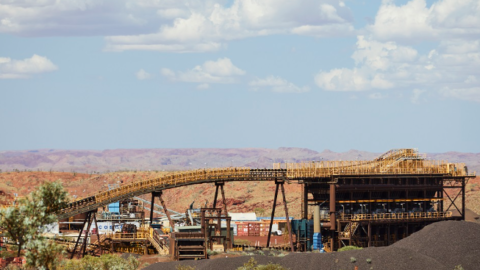The International Energy Agency (IEA) has released its latest report – Energy Technology Perspectives 2023 (ETP-2023) – outlining the current and potential risks posed to securing supply of critical mineral resources for clean energy technologies, including heat pumps.
Energy Technology Perspectives 2023, the latest instalment in one of the IEA’s flagship series, serves as the world’s first global guidebook for the clean technology industries of the future.
It provides a comprehensive analysis of global manufacturing of clean energy technologies today – such as solar panels, wind turbines, EV batteries, electrolysers for hydrogen and heat pumps – and their supply chains around the world, as well as mapping out how they are likely to evolve as the clean energy transition advances in the years ahead.
The analysis shows the global market for key mass-manufactured clean energy technologies will be worth around US$650 billion a year by 2030 – more than three times today’s level – if countries worldwide fully implement their announced energy and climate pledges.
The related clean energy manufacturing jobs would more than double from six million today to nearly 14 million by 2030 – and further rapid industrial and employment growth is expected in the following decades as transitions progress.
At the same time, the current supply chains of clean energy technologies present risks in the form of high geographic concentrations of resource mining and processing as well as technology manufacturing.
For technologies like solar panels, wind, EV batteries, electrolysers and heat pumps, the three largest producer countries account for at least 70 per cent of manufacturing capacity for each technology – with China dominant in all of them.
Meanwhile, a great deal of the mining for critical minerals is concentrated in a small number of countries. For example, the Democratic Republic of Congo produces over 70 per cent of the world’s cobalt, and just three countries – Australia, Chile and China – account for more than 90 per cent of global lithium production.
The world is already seeing the risks of tight supply chains, which have pushed up clean energy technology prices in recent years, making countries’ clean energy transitions more difficult and costly.
Increasing prices for cobalt, lithium and nickel led to the first ever rise in EV battery prices, which jumped by nearly ten per cent globally in 2022. The cost of wind turbines outside China has also been rising after years of declines, and similar trends can be seen in solar PV.
IEA Executive Director, Fatih Birol, said, “The encouraging news is the global project pipeline for clean energy technology manufacturing is large and growing. If everything announced as of today gets built, the investment flowing into manufacturing clean energy technologies would provide two-thirds of what is needed in a pathway to net zero emissions.
“The current momentum is moving us closer to meeting our international energy and climate goals – and there is almost certainly more to come.
“At the same time, the world would benefit from more diversified clean technology supply chains.
“As we have seen with Europe’s reliance on Russian gas, when you depend too much on one company, one country or one trade route – you risk paying a heavy price if there is disruption.
“So, I’m pleased to see many economies around the world competing today to be leaders in the new energy economy and drive an expansion of clean technology manufacturing in the race to net zero.
“It’s important, though, that this competition is fair – and that there is a healthy degree of international collaboration, since no country is an energy island and energy transitions will be more costly and slow if countries do not work together.”
The report notes that major economies are acting to combine their climate, energy security and industrial policies into broader strategies for their economies.
The Inflation Reduction Act in the United States is a clear example of this, but there is also the Fit for 55 package and REPowerEU plan in the European Union, Japan’s Green Transformation program, and the Production Linked Incentive scheme in India that encourages manufacturing of solar PV and batteries – and China is working to meet and even exceed the goals of its latest Five-Year Plan.
Meanwhile, clean energy project developers and investors are watching closely for the policies that can give them a competitive edge. Relatively short lead times of around 1-3 years on average to bring manufacturing facilities online mean that the project pipeline can expand rapidly in an environment that is conducive to investment.
Only 25 per cent of the announced manufacturing projects globally for solar PV are under construction or beginning construction imminently, according to the report. The number is around 35 per cent for EV batteries and less than ten per cent for electrolysers. Government policies and market developments can have a significant effect on where the rest of these projects end up.
Amid the regional ambitions for scaling up manufacturing, ETP-2023 underscores the important role of international trade in clean energy technology supply chains. It shows that nearly 60 per cent of solar PV modules produced worldwide are traded across borders. Trade is also important for EV batteries and wind turbine components, despite their bulkiness, with China the main net exporter today.
The report also highlights the specific challenges related to the critical minerals needed for many clean energy technologies, noting the long lead times for developing new mines and the need for strong environmental, social and governance standards. Given the uneven geographic distribution of critical mineral resources, international collaboration and strategic partnerships will be crucial for ensuring security of supply.











